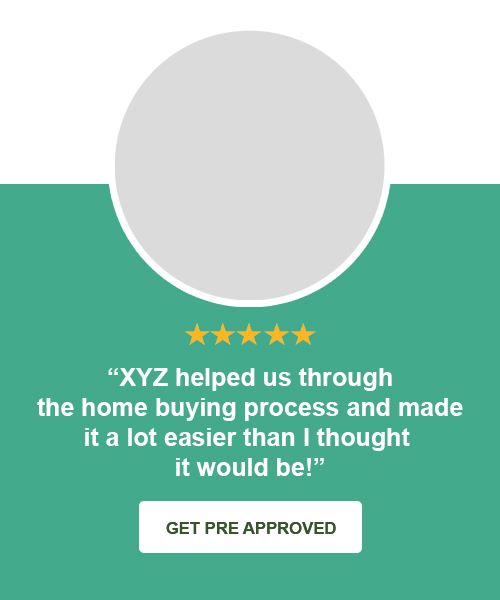
Exploring Government Programs For Low-Income Homebuyers
Jump To
Buying your own home is an age-old dream that is still alive and well today. It’s a goal that many of us strive for, but it can be difficult to achieve when you’re on a tight budget. Fortunately, the government has several programs in place to help low-income homebuyers get into their own homes. And with a little exploration, you could be unlocking the door to your very own place in no time!
For those with lower incomes, navigating the world of mortgages and government programs can be overwhelming. From understanding credit scores to locking down an affordable loan, there are a lot of moving parts to consider before taking the plunge into homeownership. But don’t worry—we’re here to help! In this article, we’ll break down all the info you need to know about government programs for low-income homebuyers and explain how you can get started on your journey toward owning a home.
We’ll start by discussing what qualifies as “low income” and what kind of assistance these programs offer. We’ll then delve into some of the most popular government initiatives available and how you can go about applying for them. Finally, we’ll cover some other helpful tips and resources so that you can make informed decisions when purchasing your first home. So let’s get started!
Overview Of Government Programs For Low-Income Homebuyers
Living in one’s own home is a dream come true, and the government has made it possible for low-income earners to make that dream come true. It might seem like an impossible feat, but with the right assistance and guidance, the seemingly unattainable can become reality.
Let’s take a look at the different government programs available to help low-income homebuyers. This is your opportunity to break free of renting and start building equity in your own property.
From FHA loans to down payment assistance programs, these government programs provide resources for those who may not have access to traditional banking methods. With these tools at your disposal, you can take control of your future by investing in real estate that will appreciate over time. The journey may not always be easy, but it’s worth it in the end. Plus, you’ll have a place to call home!
Qualifications For Low-Income Homebuyers
When it comes to buying a home, low-income earners have access to a variety of government programs. To qualify for these programs, there are certain criteria that must be met. Here’s what you need to know:
First off, there is an income threshold. This determines the maximum amount of money you can make and still qualify for the program. Generally speaking, this threshold is based on either your household size or the median income in your area.
In addition to income requirements, there are other factors that come into play when determining eligibility for the program. These can include:
- Credit history – You must have a good credit score if you want to take advantage of these programs.
- Employment status – You’ll need to be employed in order to prove that you have a steady source of income and can make regular payments on your loan.
- Location – Where you live will also affect whether or not you qualify for certain programs.
- Debt-to-income ratio – This ratio measures how much debt you have relative to your income, and lenders use it to determine whether or not they should approve your loan application.
With all these qualifications taken into account, it’s important to understand that low-income homebuyers may still benefit from government programs despite their financial constraints. From lower down payments and interest rates to special financing options and tax credits, there are numerous advantages available through these initiatives – all designed with the intention of making homeownership more accessible for those who need it most. So now let’s take a look at some of the benefits these government programs offer low-income homebuyers.
Benefits Of Government Programs For Low-Income Homebuyers
When it comes to low-income homebuyers, many people assume that the process is too expensive or complicated for them. But the truth is, there are a number of government programs and initiatives that offer a range of benefits to qualified homebuyers. Here’s what you need to know about these programs.
First off, government programs for low-income homebuyers provide more affordable mortgage options than those that come from private lenders. This can include lower down payment requirements, lower closing costs, and more flexible terms. Additionally, they also offer assistance with down payments and closing costs which can be invaluable to qualified buyers.
Moreover, these programs can help low-income families build financial stability by providing access to homeownership opportunities that may have been out of reach before. Plus, some of them even offer special tax credits or other incentives for first-time homebuyers.
The next step in understanding government programs for low-income homebuyers is to explore the various types available and how they can meet your needs. From grants and loans to tax credits and other incentives, each program offers different advantages depending on your individual circumstances.
Types Of Government Programs For Low-Income Homebuyers
Most of us dream of owning a home and having a place to call our own. But for many people, especially those with low-income, the dream can seem out of reach. Luckily, there are government programs designed to help make this dream possible.
Take for instance Vicky, a single mother of two who had been struggling to afford rent in her small town. Thanks to government assistance, she was able to purchase her first home and provide stability and security for her children.
Government programs come in all shapes and sizes, from loan and grant programs to tax credits and down payment assistance. Depending on your financial situation and location, you may be eligible for one or more of these programs that can help make buying a home much more affordable. It’s important to research what options are available in your area so you can take advantage of all the resources that are available to you.
By understanding the various types of government programs that exist for low-income homebuyers, it is possible to get started on the path towards homeownership. Next we’ll look at loan and grant programs specifically designed for low-income families looking to buy their first home.
Loan And Grant Programs For Low-Income Homebuyers
Are you looking for ways to become a homeowner? Government programs are available to help low-income earners achieve their dreams of home ownership. With the right information and a little bit of effort, you can be on your way to owning a home. Let’s take a look at five loan and grant programs for low-income homebuyers.
The first program is the Federal Housing Administration (FHA) loan. FHA loans are government-backed mortgages that offer lower interest rates and down payments than conventional loans. They also have fewer restrictions on credit scores and income requirements, making them ideal for those with limited financial resources.
Another program is the USDA Rural Development Loan Program. This program provides zero-down payment mortgages to those living in rural areas with low or moderate incomes. It also offers assistance with closing costs, which can help make homeownership more affordable for those who may not qualify for traditional financing options.
Finally, there are state and local government grants that can help cover closing costs or provide down payment assistance. To find out what grant opportunities exist in your area, check with your local housing authority or visit the National Council of State Housing Agencies website.
These three loan and grant programs can help make buying a home more achievable for those who might otherwise be unable to get financing due to their financial situation. While these programs provide invaluable assistance, it’s important to remember that taking advantage of them requires careful planning and research – both into the available options as well as your own individual needs and abilities when it comes to purchasing a new home. Now let’s take a look at some of the tax advantages that can come along with owning a home as a low-income earner…
Tax Advantages For Low-Income Homebuyers
Taxes are often the last thing people think of when looking for assistance to buy a home. However, for low-income homebuyers, tax advantages can be an important part of the equation. Like a key unlocking a door to a new home, taxes can open up opportunities that may not have otherwise been available.
The Internal Revenue Service (IRS) offers several tax incentives specifically designed to help low-income homebuyers. These include deductions for mortgage interest and property taxes, credits for energy efficient upgrades, and more. For example, the Earned Income Tax Credit is a refundable credit available to qualifying taxpayers who earned less than $49,000 in 2020.
In addition to federal government assistance programs, many states also offer tax advantages for low-income homebuyers. For example, some states provide property tax exemptions on primary residences of individuals with limited incomes or disabilities. Additionally, state housing finance authorities may offer tax credits or other financial assistance that can help make homeownership more attainable.
With both federal and state initiatives offering such varied forms of tax relief to those in need of financial assistance, now could be the time to explore what options are available in order to make homeownership more affordable. Let’s take a look at what state and local assistance programs may be able to do for low-income homebuyers next.
State And Local Assistance Programs For Low-Income Homebuyers
Wow, the opportunities for low-income homebuyers to get assistance with their purchase seem endless! From tax advantages to state and local government programs, there are so many ways to make buying a home more accessible. Here’s a look at state and local assistance programs for low-income homebuyers:
Firstly, many states offer housing finance agencies (HFA’s) which provide mortgage loans and down payment assistance. HFAs also help buyers apply for other special loan programs. Secondly, some communities have their own first-time homebuyer support services that may include grants or financial aid. Lastly, there are also housing counseling agencies that can assist with budgeting and learning about homeownership options.
Here’s a quick breakdown of the types of help available:
- Housing Finance Agencies – Provides mortgage loans and down payment assistance
- Local Assistance Programs – Include grants or financial aid
- Housing Counseling Agencies – Offers budgeting advice and homeownership information
With so many amazing resources at our fingertips, it’s easy to find the right program to help make your dream of owning a home come true! Now let’s take a look at how you can find one of these low-income homebuyer programs.
How To Find A Low-Income Homebuyer Program
Finding the right low-income homebuyer program can seem daunting, but with the right resources and knowledge it’s achievable. To ensure you make the best decision possible, let’s explore how to find a program tailored to you.
First, consider researching government programs that exist in your area. Many local governments offer assistance for low-income homebuyers, so check out your state and city websites to see what’s available. You can also visit HUD’s website for a comprehensive list of government programs that are offered throughout the country.
Next, connect with real estate agents who are familiar with these kinds of programs. They may be able to provide additional insight into what options are available in your area and help guide you through the process of finding a program that fits your needs. Additionally, look into nonprofit organizations that work specifically with low-income homebuyers – many times they can provide resources or financial assistance to help you get started on your journey towards homeownership.
With the proper research and resources, you’ll be one step closer towards finding the low-income homebuyer program that is right for you. Now let’s move on to some tips for applying for these types of programs
Tips For Applying For Low-Income Homebuyer Programs
Applying for a low-income homebuyer program can seem like a daunting task, but with the right preparation and knowledge, it doesn’t have to be. It’s important to understand the process before diving in so you can get the best possible outcome. Here are some tips for applying for these programs.
First, prepare all necessary documents. Gather income statements, bank statements, credit reports and proof of residence in order to begin the application process. Having these materials ready beforehand will make it much easier to fill out your application quickly and accurately.
Second, research low-income homebuyer programs in your area thoroughly. Not all programs are created equal, so researching what is available to you is key in finding the best value for your needs. You should also inquire about any potential tax benefits or other incentives you may be eligible for when applying for a program.
Finally, consult with an experienced professional if needed. A real estate agent or mortgage lender can provide valuable guidance when navigating the application process and help ensure that you get the most out of your program choice. Asking questions and seeking expert advice can make all the difference when it comes to taking advantage of government assistance as a low-income homebuyer!
Common Pitfalls To Avoid When Applying For Low-Income Homebuyer Programs
It’s an exciting prospect to become a homebuyer and especially when you are part of a low-income program. But, it’s important to be aware of the challenges that may come your way as you take this journey. Let’s take a look at 10 common pitfalls to avoid when applying for such programs.
Navigating through the paperwork and understanding various policies can be daunting. It’s important to research thoroughly about all the requirements and documents needed for the application process. Not meeting deadlines or submitting incomplete applications can cost you time and money in the long run.
Another obstacle is not being able to meet financial requirements which may include a minimum credit score or debt-to-income ratio. It is also crucial to work with experienced professionals who can guide you in making informed decisions. Having adequate savings will help cover down payments and closing costs which can make or break your application process.
In order to make sure that your application is successful, it’s essential to understand any potential risks or areas that may need extra attention. Don’t let these pitfalls get in the way of achieving your goal – owning a home!
Conclusion
It can be difficult to navigate the world of low-income homebuyer programs. There are a lot of requirements and restrictions to consider. But at the end of the day, it’s worth it. With the right program, you could be on your way to owning a home and creating stability for yourself and your family.
The truth is that anyone can become a homeowner – even those on a limited budget. It may take some research using resources such as Home Mortgage Guides, and effort, but with the right government program, you have the opportunity to make homeownership a reality. And if you’re a veteran? You have access to even more benefits that could help make the journey easier.
So don’t let financial concerns prevent you from taking this step towards success. There are resources available that can help make buying a home an achievable goal – no matter what your income or credit score is! With determination and dedication, you can unlock the door to homeownership and start living the life you deserve.
FAQs
What Are The Income Requirements For Qualifying For A Low-Income Homebuyer Program?
Have you ever wondered how to qualify as a low-income homebuyer? It can be daunting trying to figure out which programs are available and what the income requirements are. In this article, we’ll explore government programs for low-income homebuyers and answer the question of what the income requirements are for qualifying for these programs.
First, it’s important to understand that qualifications vary from program to program. Generally speaking, however, a household must earn 80% or less of the area median income (AMI) in order to qualify as a low-income homebuyer. This means that if you live in an area with an AMI of $60,000 per year, your household must earn no more than $48,000 annually to meet the requirements.
In addition to income requirements, many programs also consider factors such as credit score and debt-to-income ratio when evaluating applicants. This is done to ensure those who receive assistance can handle the responsibilities associated with homeownership. To learn more about specific qualification guidelines for different programs, it’s best to contact local housing authorities or organizations that provide financial counseling services.
So if you’re looking into purchasing a home but don’t think you make enough money, there may still be options available! Do your research and reach out to local organizations so you can find out what kind of assistance is available in your area.
What Is The Maximum Amount Of Money I Can Receive From A Low-Income Homebuyer Program?
Are you dreaming of owning a home but don’t have enough financial resources to make it happen? Well, I have some amazing news for you – there are government programs available to help low-income homebuyers! It’s almost too good to be true.
So, what is the maximum amount of money that you can get from the program? Well, the answer varies depending on the program. Generally speaking, most programs limit the amount of assistance they provide per household to no more than $10,000. This amount is usually meant to cover closing costs and other expenses related to purchasing a home.
In addition to monetary assistance, many of these programs also offer other forms of support. For example, some programs offer counseling services for first-time homebuyers or provide access to special loan products with more favorable terms. These services can be incredibly helpful in making sure that you are able to find and purchase a home that meets your needs and budget.
So if you’re ready to take the plunge into homeownership and need some extra help getting there, don’t hesitate – explore what low-income housing programs are available in your area! With enough research and preparation, you could be the proud owner of a new place in no time!
Are There Any Special Benefits For Veterans Applying For Low-Income Homebuyer Programs?
I’m a veteran looking for a low-income homebuyer program, and I’m wondering if there are any special benefits for me. It’s important to know my options so I can make the best choice for my family.
Fortunately, there are some programs that provide additional assistance to veterans who are looking to purchase a home with a low-income homebuyer program. For example, the VA Home Loan program from the Department of Veterans Affairs offers competitive interest rates and no down payment requirements for eligible veterans. This is an excellent option for veterans who don’t have much cash saved up for a down payment or closing costs.
In addition, many states offer tax credits or other incentives specifically designed to help veterans qualify for low-income homebuyer programs. These programs may be tailored towards helping veterans cover closing costs or even reduce their monthly mortgage payments over time.
It’s worth researching these programs in depth so you can decide which one best suits your needs as a veteran homebuyer.
Is There A Minimum Credit Score Requirement To Qualify For A Low-Income Homebuyer Program?
Navigating the low-income homebuyer programs can be like learning a foreign language – it’s an intimidating journey that requires patience and understanding. With so many options available, it’s easy to get lost in the details of what is required for qualification. One of the most important questions when applying for these programs is whether there is a minimum credit score requirement.
The answer depends on the specific program and state you are applying from, as some states have higher credit score requirements than others. Generally speaking, you will need a credit score of at least 580 to qualify for a low-income homebuyer program – although this number could be higher or lower depending on your location and other factors such as your debt-to-income ratio. It’s also important to note that not all programs will require a credit check, so it’s worth researching what you might be eligible for in your area.
Even if you don’t have the best credit score, there are still plenty of options available to help make homeownership possible. There are several organizations dedicated to helping first-time buyers who may not have the best credit history and can provide assistance with down payment funds or special loan products tailored to their needs. Researching all your options thoroughly can help make sure you find the perfect fit for your situation and make that dream of owning a home come true.
Are There Any Restrictions On The Type Of Property I Can Purchase With A Low-Income Homebuyer Program?
So, you’re looking into government programs for low-income homebuyers. That’s great! It’s a good idea to make sure you understand all the details before you dive in. One important detail to consider is whether there are any restrictions on the type of property you can purchase with a low-income homebuyer program.
The answer is, it depends. Different programs may have different rules and regulations regarding what types of properties they will fund. Some may only fund single family homes while others may allow you to purchase condos or townhouses as well. It’s important to do your research and find out which program is right for you.
It’s also important to note that some programs may have restrictions on where the property can be located or what kind of repairs are needed prior to purchase. These details can be easily overlooked if you don’t take the time to read through the fine print. So, if you’re thinking about using a low-income homebuyer program, make sure to do your due diligence and understand all the terms and conditions before making any decisions.
Get A Pre-Approval Today!

Home Mortgage Calculator


Leave a Reply